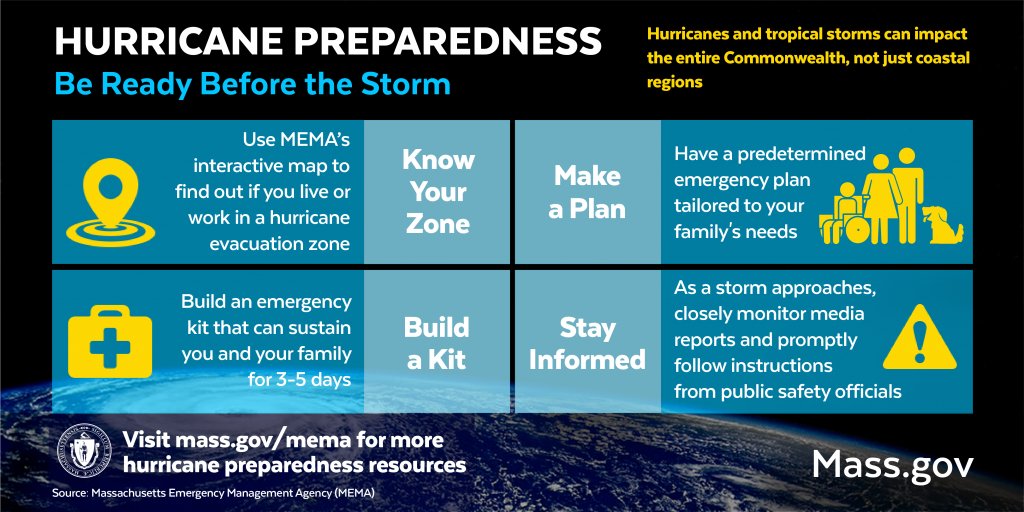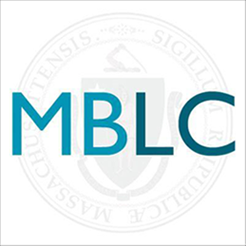
The Governor has proclaimed the week of July 12 to July 18 Hurricane Preparedness Week in the Commonwealth. The Massachusetts Emergency Management Agency (MEMA) with Coordinated Statewide Emergency Preparedness (COSTEP) has created important information for cultural institutions to keep in mind as hurricane season progresses.
The peak of hurricane season is in August and September, and this year, the National Oceanographic and Atmospheric Administration (NOAA) predicts an above normal season. Although Massachusetts has not seen a hurricane since Hurricane Bob in 1991, it has a history of destructive storms, and the whole state is at risk with the threat of storm surges in coastal areas and high winds, heavy rainfall, and flooding inland. It is important to remember that these storms will continue during the COVID-19 pandemic and that it only takes one storm to severely impact an area.
How Residents Can Prepare
Evacuation Zones: There are several different evacuation zones in the coastal parts of the state. Residents can look up to see if they live or work in one at www.mass.gov/knowyourzone.
Make an Emergency Plan: Develop a plan with the members of your household to prepare for what to do in a tropical cyclone including making an evacuation plan, planning for individuals with access and functional needs, and any extra considerations during COVID-19 pandemic including how you might evacuate and where you might evacuate to. If you are in a high-risk population, the safest option may be to evacuate to a location without the general public such as a hotel, relatives’ home or other destination. https://www.mass.gov/info-details/make-a-family-emergency-plan
Build an Emergency Kit: Build an emergency kit containing items that will sustain you and your family in the event you are isolated for three to five days without power or unable to go to a store and customize for your family’s needs. During the COVID-19 pandemic, include face coverings, masks, hand sanitizer and other cleaning supplies that you may need. https://www.mass.gov/info-details/build-an-emergency-kit.
Stay Informed: Every family should have multiple methods for receiving emergency alerts. Learn more about different types of alerting and information tools including the Emergency Alert System, Wireless Emergency Alerts, NOAA Weather Radio, Social Media & Traditional Media, 2-1-1 Hotline, Local Notification Systems: https://www.mass.gov/info-details/be-informed-and-receive-emergency-alerts.
The Massachusetts Government is working together to help prepare the state. MEMA and the Department of Public Health have developed guidance for the Commonwealth and municipalities for providing and operating shelters and conducting evacuations during COVID-19. In addition, state agencies are adding screening, sanitization, disinfection, and general public health protocols to existing mass care plans; and planning for and preparing to provide sheltering in non-congregate settings such as hotels. This planning is all on top of regular hurricane season planning and outreach efforts with local, state, federal, and non-governmental partners.
More information about hurricane preparedness can be found on the COSTEP website, and a recording of a webinar with Matthew Belk, a Lead Meteorologist for the National Weather Service, Boston, on the 2020 upcoming hurricane season is available here.
